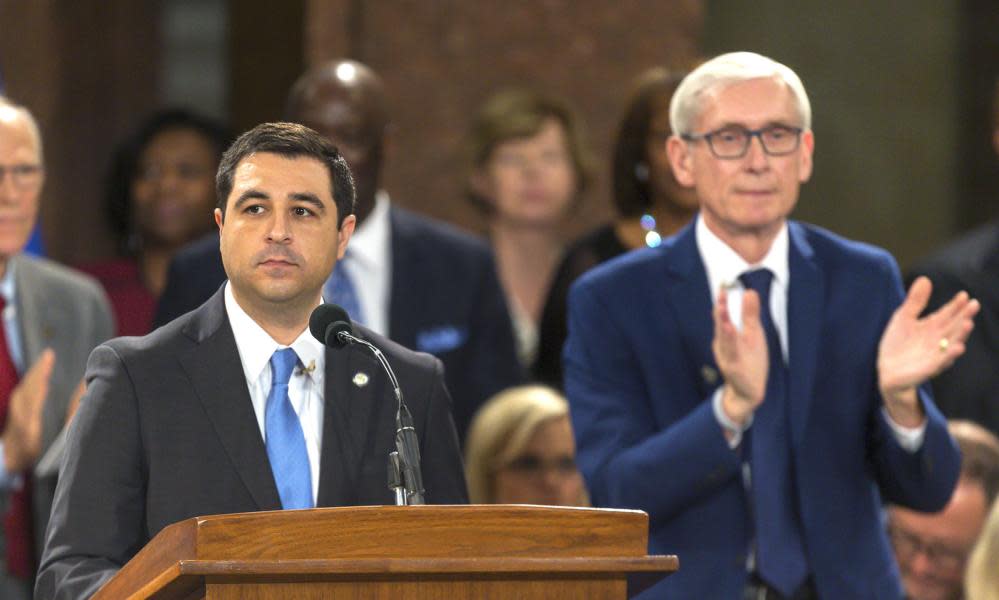Wisconsin court upholds Republican laws curbing powers of Democratic officials

The Wisconsin supreme court gave state Republicans a significant victory on Thursday, upholding a suite of laws passed during a lame-duck session in 2018 designed to curb the power of incoming Democratic officials.
Related: Court reinstates Wisconsin voting restrictions in victory for Republicans
In 2018 Wisconsin voters elected Tony Evers and Josh Kaul, both Democrats, to be the state’s governor and attorney general, respectively. In turn, Republicans passed a host of laws that blocked Evers and Kaul from withdrawing from lawsuits involving the state and forced the attorney general to seek approval from the legislature before withdrawing from lawsuits. The law also gave the legislature the ability to intervene in state lawsuits using their own attorneys.
The case underscores the brazen way Republicans in Wisconsin have been able to maintain power despite major Democratic victories. In 2011, Republicans passed a sweeping voter ID law and drew state legislative districts that made it virtually impossible for Democrats to take control of the state legislature. It worked tremendously well – in 2018, Republicans lost every statewide race, won less than half of the statewide vote, but won 63 of 99 seats in the state assembly and a majority in the state senate. Republicans used their majorities to pass the contested laws curbing Democratic power.
Legislatures in Michigan and North Carolina, where Republicans also have majorities because of gerrymandering, have undertaken similar efforts to curb Democratic power.
“In grasping at power after the 2018 elections, legislative Republicans demonstrated open hostility to outcomes chosen by Wisconsin voters and made it more difficult for state government to function effectively,” Kaul said in a statement.
A coalition of labor unions argued that the Republican-backed laws violated the separation of powers between the three branches of government spelled out in the Wisconsin constitution. But the state supreme court, where Republicans currently have a 5-2 majority, rejected that argument, saying there were circumstances where powers were shared between the branches – such as when the attorney general is representing a legislative employee. The court left open the possibility for future individual challenges to specific cases where there was a separation of powers issue.
Justice Rebecca Dallet, a liberal on the court, wrote in dissent that the court’s understanding of the legislature’s power was too broad.
Thursday’s decision was the second time the state supreme court has approved the actions Wisconsin Republicans took in the lame duck session. Last year, the state court dismissed a separate lawsuit that argued the laws were invalid because the legislative session had not lawfully convened.
Responding to the ruling, Evers accused Republicans of “sour grapes” after he won the gubernatorial election in 2018.
“We had a race for governor in 2018. I won. Unfortunately, things got off on the wrong foot because Republicans immediately passed a law overriding the will of the people and the election, and they’ve been sour grapes ever since,” he said in a statement.
Scott Fitzgerald, the powerful Republican leader in the state senate, tweeted the ruling meant that a “rogue” attorney general could no longer act without supervision of the legislature.
A separate law passed during the lame duck session only allowed jurisdictions in Wisconsin to offer two weeks of early voting (some places offered as much as six weeks). While that law was not an issue in the case before the state supreme court, a federal appeals court upheld it last week. The decision is widely expected to make it more difficult for minority voters to cast a ballot in the state.

 Yahoo News
Yahoo News 
